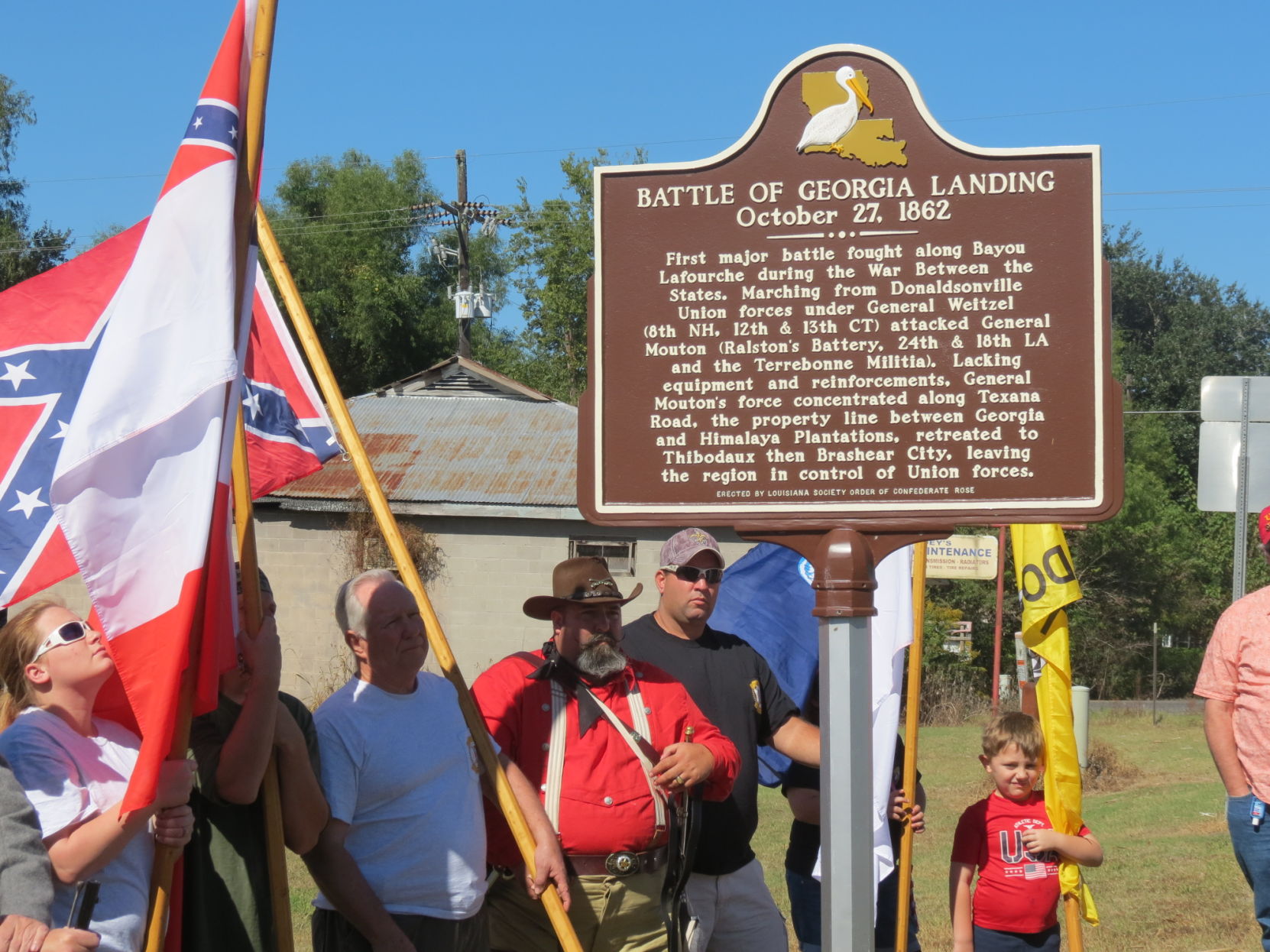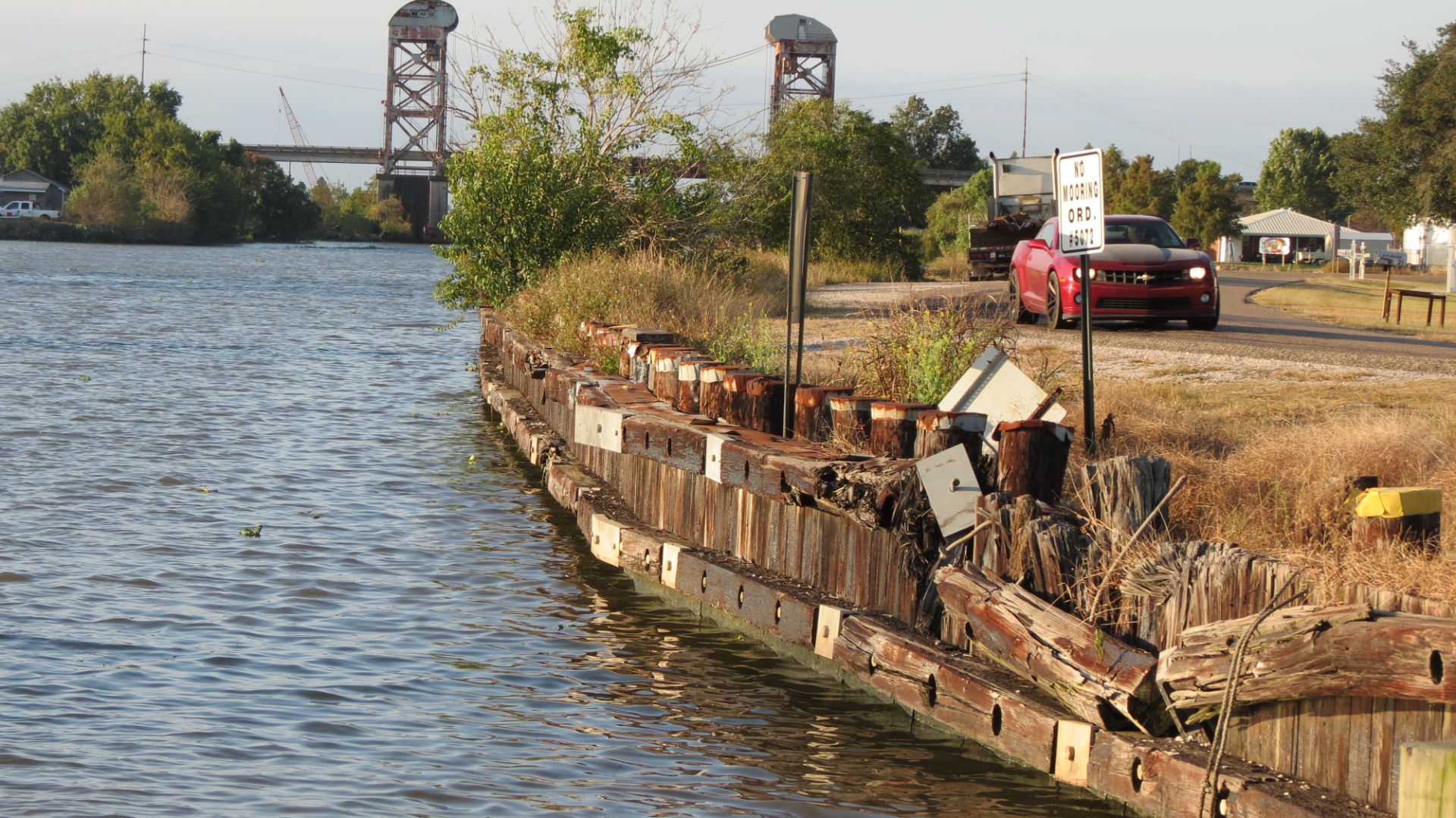
Small battle has big local consequences
November 5, 2014
Laf. accepts $5M-plus grant for Larose flood protection
November 5, 2014Andrew Capone shares his wood-framed 19th Century house in Labadieville with artifacts of a long-gone time that he and other historians say should have a higher profile in Lafourche, Terrebonne and neighboring parishes.
Cannonballs, artillery shells, bullets and buttons are just a few of the items he has recovered that are fragments of the bayou region’s Civil War history.
The chemical industry consultant is a walking encyclopedia of local history relating to the war.
He is supportive of suggestions that local governments can do more to take advantage of resources to help encourage Civil War tourism.
No plans are on the table currently, although representatives of local tourism organizations indicate that they wouldn’t be opposed.
“In general, I imagine one would find interesting things looking into this history,” said Wayne Thibodeaux, a former Terrebonne Council member who has been heavily involved with the Juneteenth celebration commemorating emancipation of slaves nationwide. He is also the director of the Houma Housing Authority. “We should exploit the possibility of the conversation. We certainly ought to have a more expansive discussion.”
Local government entities and Civil War preservation organizations, like the Washington, D.C., based Civil War Trust, which provides grants for preservation and interpretation projects, appear as middle school boys and girls at their first dance, each willing but waiting for the other to approach.
Capone, along with other local preservationists, hopes local governments will explore the possibilities and increase local historical awareness.
Capone’s home was in direct sight of troops who marched, bled and in some cases died – both federal and Confederate – during the Oct. 27, 1862 Battle of Georgia Landing.
The battle resulted in a Confederate loss, allowing federal troops, with newly liberated slaves from plantations in Napoleonville, Labadieville and northern Lafourche following them, to walk into Thibodaux. Federal forces occupied Thibodaux, Houma and other local communities for the duration of the war and afterward during Reconstruction.
“It’s part of our heritage, and why shouldn’t we care?” Capone said. “Why shouldn’t we want our children to know what our forefathers did, the way that they lived?”
Commemoration of battle sites in rural Louisiana is not as popular as it is in some other communities. For a century following the war and longer, the only recognition of war dead was for those on the Confederate side.
The Sons of Confederate Veterans, the Order of the Confederate Rose and similar organizations have made most of the commemorative gestures.
But historians say sacrifices made by partisans on both sides deserves recognition. Descendants of Confederate soldiers and officers note that while slavery was an important issue, and the freeing of slaves an important result, other problems between North and South were prevalent. Local families were not all in favor of Louisiana secession. And many who fought did so in response to the federal presence.
Capone and other historians also say that important elements of local African-American history is intertwined within Civil War history. Many local freed Black men, they note, joined the U.S. Army effort.
Last month members of the SCV and history buffs gathered in Labadieville to mark the Georgia Landing battle, at the dedication of a marker authorized by Lt. Gov. Jay Dardenne’s Office of Culture, Recreation and Tourism.
It is a first step, some say, in a potential resurgence of Civil War interest locally.
Mark Tullos, Director of the Louisiana State Museum, who attended the event, later said that government involvement in historic programs helps to keep history where it belongs, in possession of all the people.
“That is our role as historians,” Tullos said.







